SRINAGAR: Shujaat Bukhari, the editor-in-chief of Rising Kashmir born on 25 February 1968 was shot dead on 14 June 2018 outside his office in Srinagar’s Press Enclave by unknown assailants around 7 pm (Near to Iftar Time) in the Month of Ramadhan on eve of Eid (a day before Eid-Ul-Fitr).
He was a Srinagar-based journalist who had previously survived three assassination attempts during his career following which he was given security cover in year 2000. However both of his SPO’s were also killed during the assassination of Shujaat. He had also been the Bureau Chief of The Hindu for 15 years. Between 1997 and 2012 he was a correspondent for ‘The Hindu’ in Srinagar.
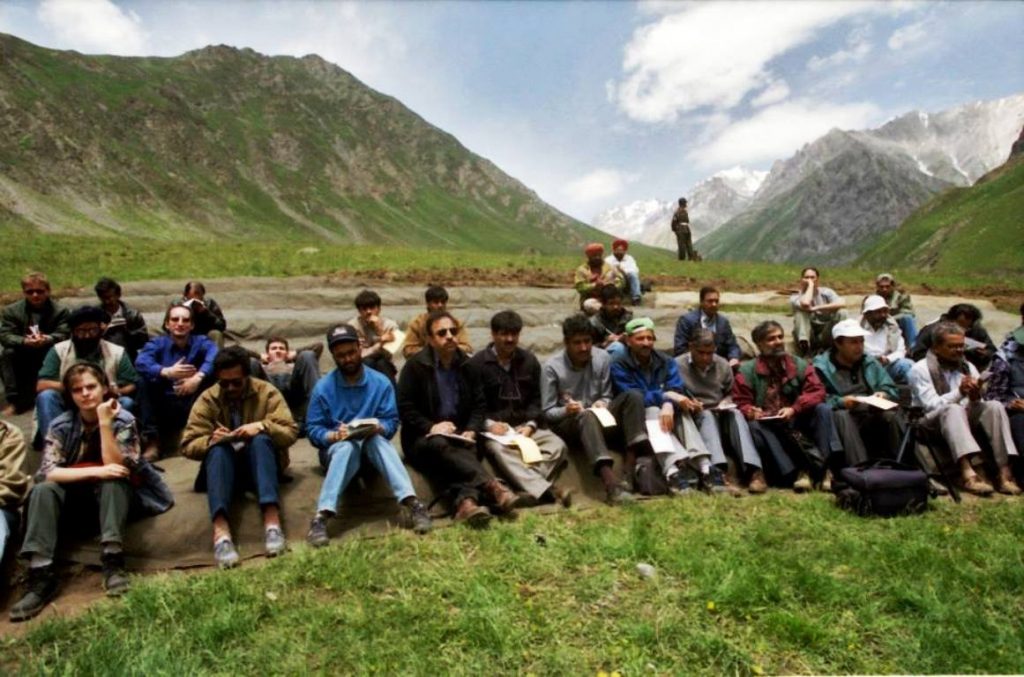
He was a writer in English, Kashmiri and Urdu. Bukhari, 50, would write commentaries in various national and foreign news outlets including the BBC. He was representing Germany’s Radio Dutsche Welle for many years during 2000s. He was also writing for the Frontline till recently. His skills had been initially honed by the veteran journalist Ved Bhasin when he was working Kashmir Times.
He founded the English daily Rising Kashmir and the sister publications, Buland Kashmir (in Urdu), Sangarmal (in Kashmiri) and Kashmir Parcham (Urdu Weekly).
Shujaat started his career in journalism with Jammu-based English newspaper Kashmir Times in 1996. Later he joined the national newspaper, The Hindu and quit the paper after launching his own English newspaper Rising Kashmir in 10, March 2008.
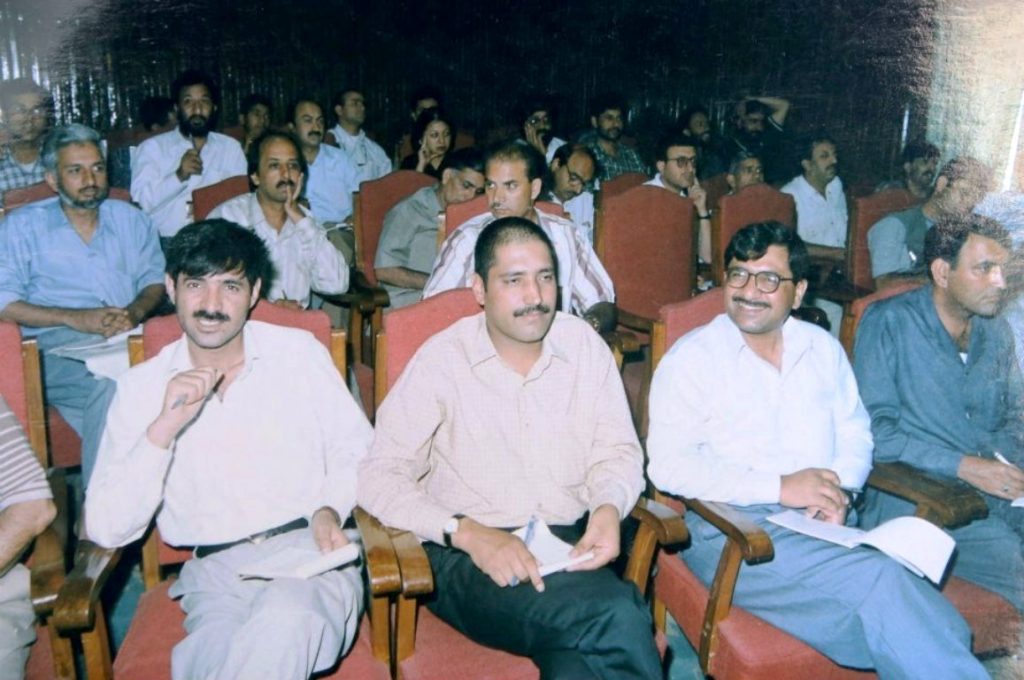
He completed his Masters in Journalism from Ateneo de Manila University, Manila as a fellow of Asian Centre for Journalism, Singapore. Quite a bright one, he received the World Press Institute (WPI) USA fellowship, Asian Centre for Journalism Singapore fellowship. He was a permanent fellow at both institutions. Bukhari has also been a fellow at East West Centre in Hawaii, USA.
He is the brother of PDP MLA and Minister Syed Basharat Bukhari. Shujaat was married in 2000, survived by elderly parents, wife, daughter (9th grade) and son (10 grade). Bukhari was born in Keeri area of Baramulla in Sayeed family. His father is a retired professor in literature.
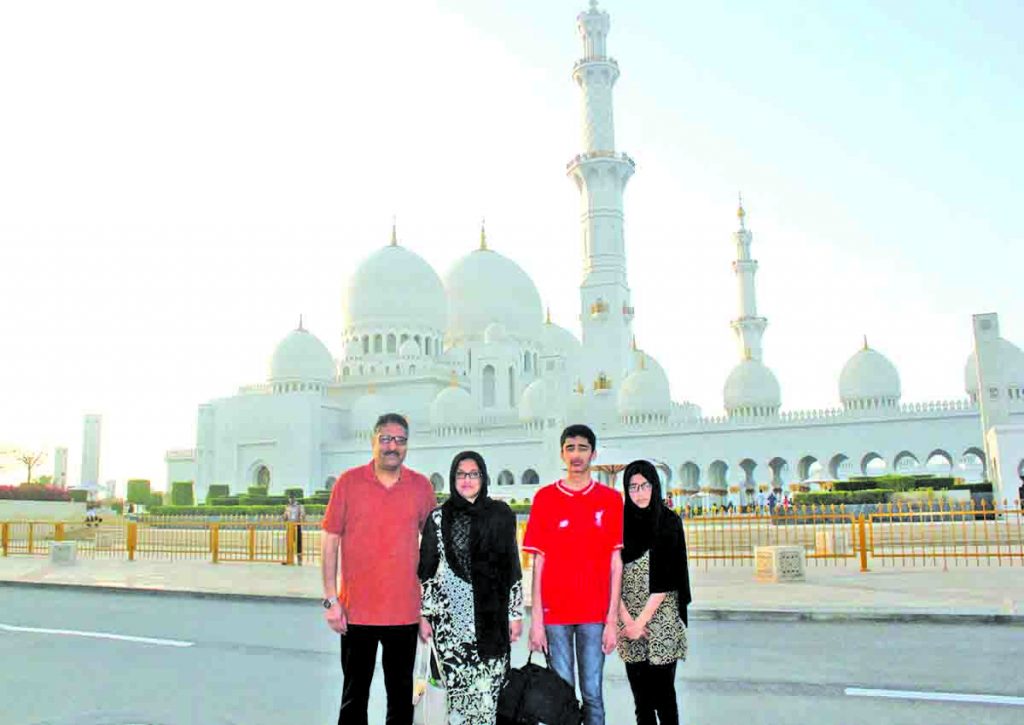
Not many people know that Shujaat’s uncle Abdul Majid Bukhari’s both sons were killed. Syed Ishtiyaq Bukhari, the elder of his sons was a JKLF militant who was killed in an encounter on December 7, 1993. Qaisar, his younger brother, was an eleventh standard student when unidentified gunmen kidnapped him on August 3, 1993 and his body was located and retrieved from an apple orchard on November 7, 1995. Shujaat’s another closed relative worked for the police.
The extensively traveled journalist Bukhari was also the president of Adbee Markaz Kamraz Kamraaz (literary forum of North Kashmir), the biggest and oldest cultural and literary organization of the Valley working for the rejuvenation of the Kashmiri language and culture. Less known is the fact that Shujaat Bukhari, with a doctorate, was a literary and cultural activist.
The advocacy of the cultural group Adbee Markaz Kamraz, which Bukhari headed, succeeded in introducing the Kashmiri language back in schools in 2008, after a gap of over three decades.
He was a linguistic nationalist, and his much-awaited dream to see Kashmiri taught up to Class 10 was realised in June 2017, despite opposition from many quarters. His efforts to publish books in Kashmiri despite dearth of funds and promote local writers went a long way in helping the survival of a language on the verge of extinction.
During the 2014 floods, Bukhari rescued people from marooned houses by rowing inflatable boats himself and supplied essentials to the needy; he was proud that he was able to shift several Hindu families to safe locations.
Bukhari played a key role in organising several conferences for peace in the Kashmir Valley. He was also part of the Track II process with Pakistan. Working actively on the Track II circuit and closely with the London-based Conciliation Resources that brought interlocutors from India, Pakistan and both sides of the Line of Control to Dubai, Istanbul and other locations away from the din of the subcontinent.
Shujaat was an advocate of peace and favoured peaceful resolution of the Kashmir issue. He was a regular speaker about the Kashmir conflict and politics at international conferences, National and International television news channels.
In 2015 he was part of the SAFMA proceedings and later in October 2010, he was formally taken as a member. Then, there was no looking back. Shujaat must be the only Kashmiri resident who might have seen most of the world.
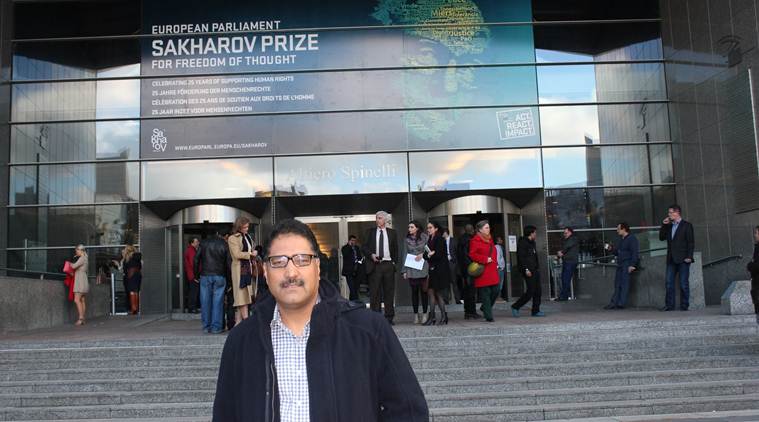
Shujaat was always well dressed and smart. But not many people knew he was highly unwell. Living with half a dozen diseases, he would take almost 20 tablets a day plus insulin. It was much earlier during his Kashmir Times days when he suffered a mild heart attack during Ramzan and had to stay in the hospital for few days.
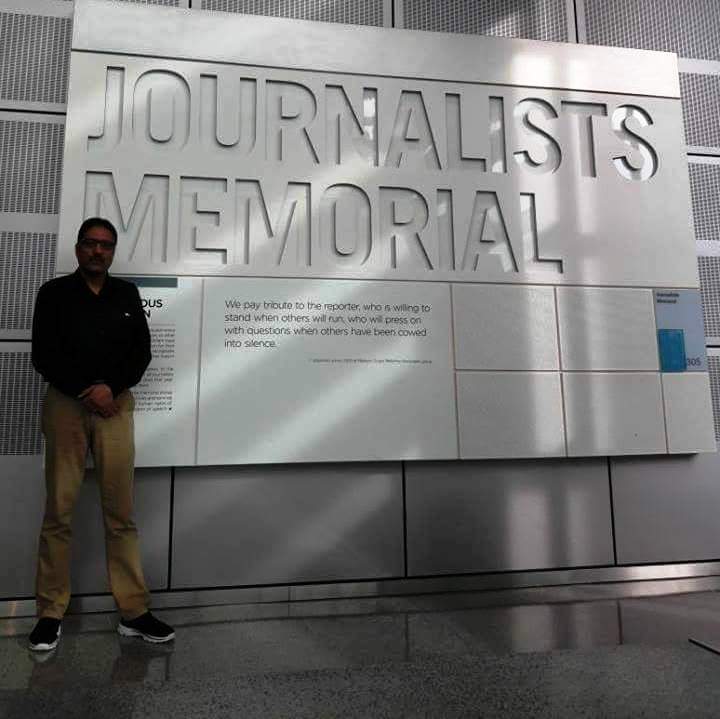
On December 10, 2015, Shujaat miraculously survived a major brain haemorrhage stroke and took almost a year in becoming normal. He was the rarest case of sorts who returned from the borders of death only to die a martyr just outside his office, hungry, thirsty and barely minutes before the Ramzan breakfast, the Iftaar.
Shujaar Bukhari was laid to rest in the ancestral graveyard at his hometown Kreeri in District Baramulla around 11 a.m on 15 June 2018.
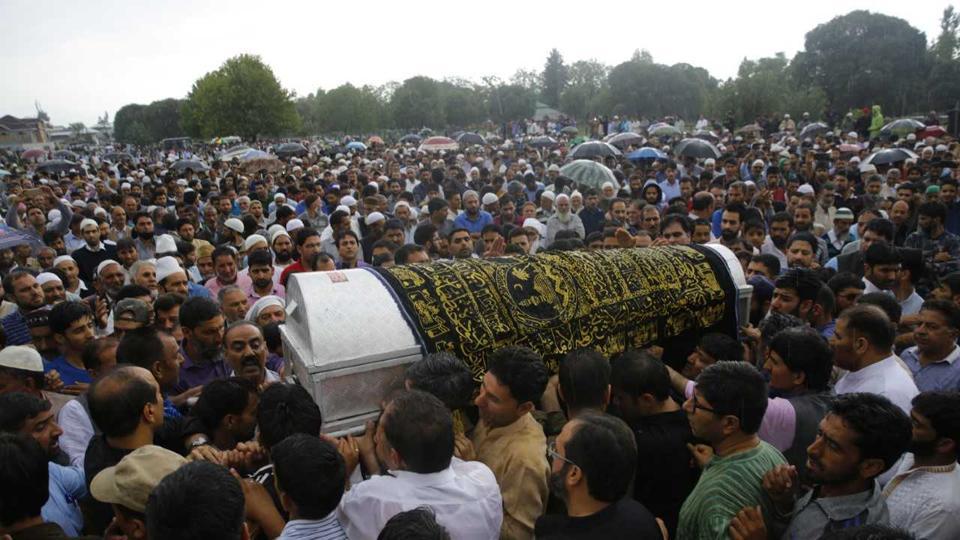
Shuja’at was an avid social media user. He was very active on social media and twitter, often kicking up spars with various persons over certain issues. Shuja’at’s last tweet quoted the UNHRC’s first-ever report on Kashmir situation. Prominent personalities from Kashmir and outside have expressed shock over his killing saying that he died in the line of duty.
A veteran journalist and Chief Editor Kashmir Life newspaper writes in his Article ‘The Shujaat, You do not know’ that “I exactly do not remember when we met for the first time but I clearly know the first assignment I gave Shujaat was in the summer of 1990”. Hussain recalls that Shujaat was associated with the blood-soaked Srinagar dateline since the 1990s.
Hussain said that after he left Alsafa newspaper which he had joined in late 1989, he revived the magazine Takbeer, that actually belongs to his friend and mentor Jawhar Qadoosi and it was for this, he involved, among others Shujaat Bukhari.
He writes, “I asked him to write a copy on the ongoing strike of the state employees. A marathon strike against the violations of human rights, it was supported by a section of the IAS as well. Its immediate trigger was the dismissal and arrest of employees in good numbers. It was an interesting piece of reportage to edit and was published under the heading: Mulazimeen: Naqaarkhanay Mein Toutay Kie Gutargoun.
“The second assignment I gave him for the same issue was a joint story. He and Dr Khursheed-ul-Islam, now a professor, met the people who were arrested and released to tell their stories. It was a slightly longish copy that had interesting anecdotes of pain, loss and survival. It went to print with the interesting heading: Raastay Band Hain Sab, Kouchay-ie-Qatil Kay Siva”, Hussain writes further.
According to Hussain during these days Shujaat applied for a major employment drive by the central government. Capable enough, he got clerical jobs in AGs office and Shujaat joined.
Hussain said in his write-up, when he joined Kashmir Times Newspaper as he could not manage Takbeer magazine continuation for the lack of resources, he started suggesting Shujaat that it will be untenable to be a journalist and a government employee at the same time. He said with a consistent insistence actually succeeded Shujaat in convincing his parents and he finally resigned the job.
“Those days, death was so common that it would look like a neighbour if not a friend”, he recalls. He adds that one day, Shujaat came almost in a panic. “Last night, I barely survived,” Shujaat told Hussain. “Somebody advised me against taking a particular road to Jawahar Nagar because there was a landmine and then I got to know it was planted by a militant from the neighbourhood and I was the target”, Shujaat had told Hussain.
He said that they had no means to investigate and nothing much to tell except: “from now on, move home early and do not use this track.”
“I remember the happenings on July 8, 1996, when a group of 19 reporters were on way to attend the press conference of Azad Nabi, a renegade leader operation from Shehlipora near Achabal. It was perhaps his first news conference. As the groups reached Anantnag town, they were waylaid by another renegade group and taken to Khanabal as hostages. They were seeking Afzal Shah, the Kashmir Times photographed from Jammu and incidentally, he was also in the same group. Five of them were segregated and kept aside. They told them the five will have to die”, he said.
“We have been kidnapped and they want to kill us,” Shujaat rang up the office and almost whispered to me. He had taken the advantage of the phone that was in the room where they were being held”, Hussain said.
He added, “I laughed and shouted at him: “Be there. There is good news for you. Your salary is hiked by Rs 500… Wait we will do something.” That morning we had an edit meeting and Bhasin Sahab had kindly agreed to a hike. Shujaat was somebody who would not sit idle especially in this situation. Witty, as he was, he used the same telephone line to inform the US-based Committee for Protection of Journalists (CPJ) about the whole incident. In Srinagar, as we were assembling the colleagues to put some pressure, the CPJ statement from the US had already done our job easy”.
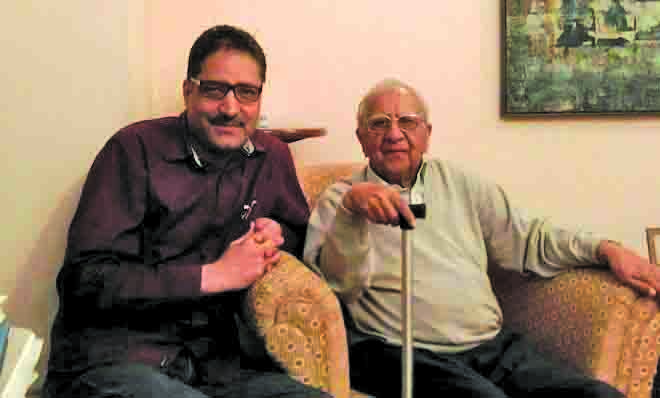
“Later, that evening a Major rank officer led an operation and got the entire group to Srinagar. Shujaat had a great capability of remembering all the important telephone numbers and that was perhaps why we rarely required a telephone directory. His love for sophisticated phones that people would witness after the entry of cell phone was the outcome of his love for the technology”, he recalls.
Much later, when Shujaat was kidnapped from the Residency Road in an auto-rickshaw by some unknown gunmen and dumped near Eidgah, he had quickly used his phone to SMS his colleague Khurshid: “Kidnap, kill me’.
“Once home, Shujaat told us that they fired on him before fleeing but he survived. Either they missed the target or they simply wanted to scare him. Once, they fled, Shujaat ran up to Hawal Chowk where from he rang up his home. I presume it was on basis of this that security cover was extended to him”, Hussain writes.
Another journalist and staffer at Shujaat’s Rising Kashmir Mir Basit Hussain recalls that when he joined the Rising Kashmir way back in 2016, “Welcome home,” the ever smiling and welcoming Shujaat Bukhari greeted him in Rising Kashmir office, after he left a well-paying journalistic job in the Middle East and came home to work with a local newspaper.
“Everything is going to change Basit Sahab. Be prepared to face applause and allegations at the same time”, Shujaat had told Basit.
“There was always a reassuring voice of Shujaat Bukhari around me. Being a cult himself, the gentleman editor was always approachable and never failed his reporters. Given his dominant physical features, one got an impression that the person would be imposing, a boss. But as soon as he came forward for greetings, one saw a completely gentle and a docile human being. When his friend and colleague Sahil Maqbool fell to a massive heart attack early this year, Bukhari was among the few men standing like a rock behind Sahil’s crestfallen family”, he writes.
“You won’t earn money the way you used to in Delhi or abroad but you’ll earn big in other spheres. It’s going to be exciting, adventurous, at times scary and troublesome. You’ll feel the heat and face the music. At the end you’ll see that it was all for good”, Shujaat had told Basit.
Shujaat had advised Basit, “Just remember one thing. You’re a journalist, not an activist. Always carry both sides. There is no story in this world which is one sided only.”
He was always at the forefront, clearing confusion on Kashmir. To strike some sense to the nonsensical TV debates on Kashmir, Bukhari would often participate in the prime time debates. Mindful of the spewed cum sponsored venom, the late editor would objectively plead the case of Kashmir. While countering fringe panellists and anchors during the debate, Bukhari would never call a spade a shovel. This made him one of the reasonable voices from Kashmir who tried to plead the case of Kashmiris in a very rational and humanitarian manner. Even when the forces was coming down heavily on insurgents and in the process created rage, Bukhari would bat for peaceful resolution of the protracted conflict.


Comments are closed.